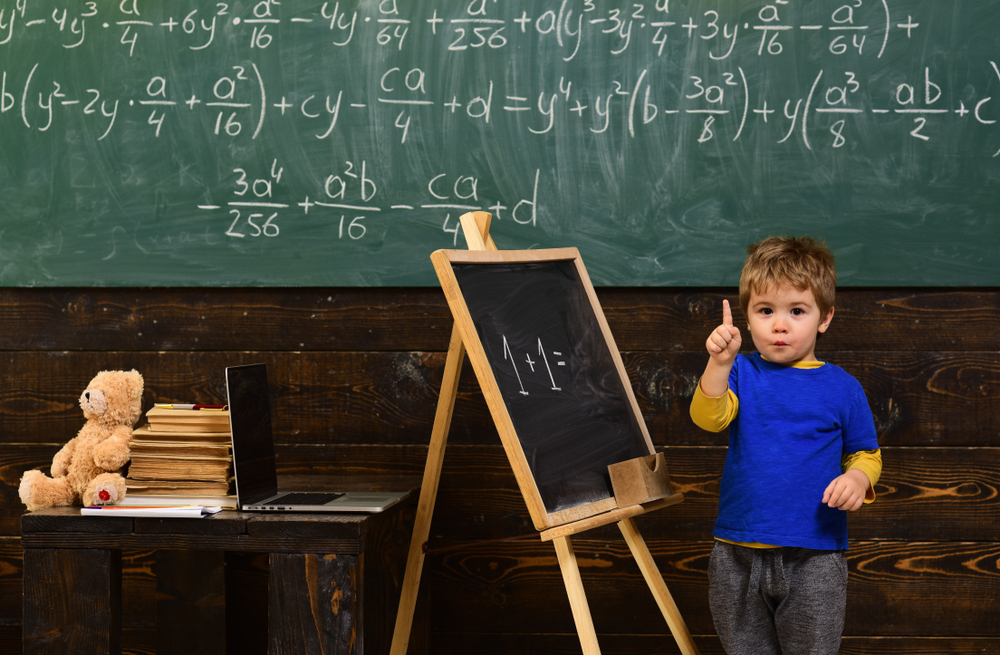Normal Reading Non-Fiction worksheets activities for Ages 5-9
4 filtered results
-
From - To
Explore our engaging Normal Reading Non-Fiction worksheets designed for children ages 5-9! Tailored to spark curiosity and enhance comprehension, these activities cover a variety of exciting topics that captivate young minds. Each worksheet encourages kids to read informative texts, answer questions, and apply their knowledge in fun, interactive ways. With a focus on developing critical thinking and literacy skills, our expertly crafted resources help young learners build a strong foundation for future reading success. Perfect for classroom use or at-home learning, these worksheets make non-fiction reading an enjoyable adventure! Check it out and inspire a love for reading in your child today!
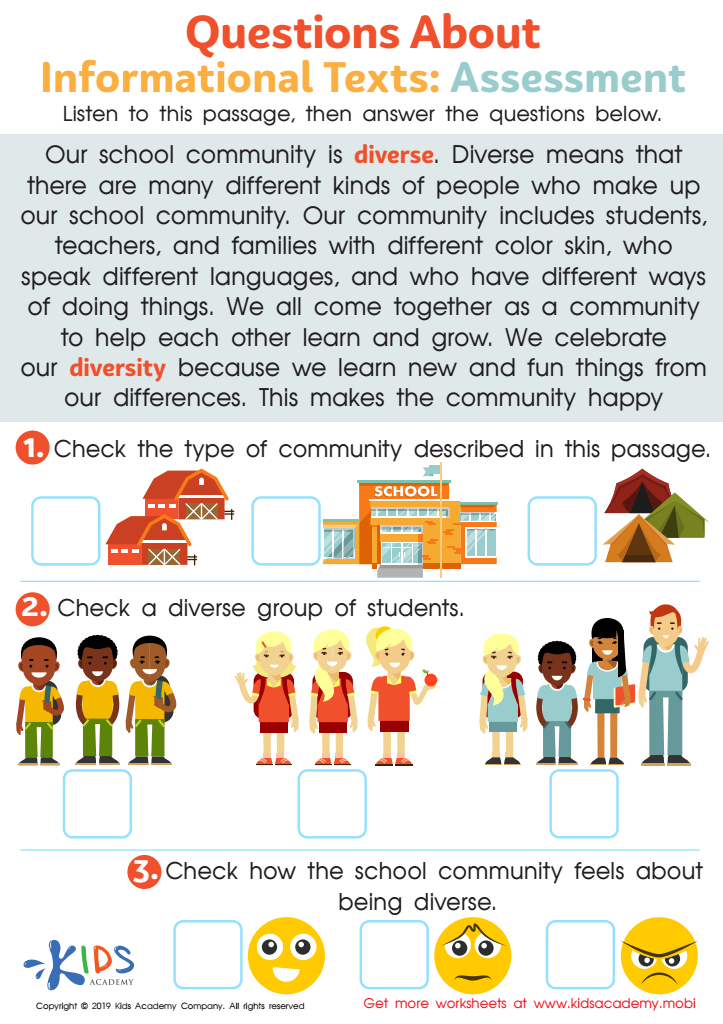

Questions About Informational Texts: Assessment 1 Worksheet
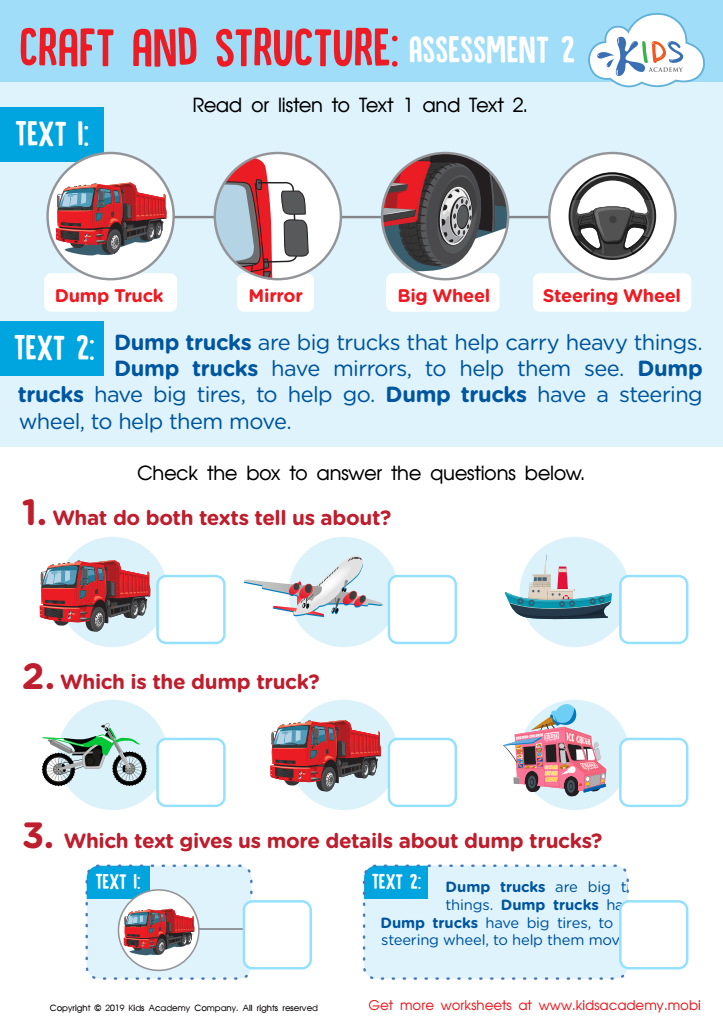

Craft and Structure: Assessment 2 Worksheet
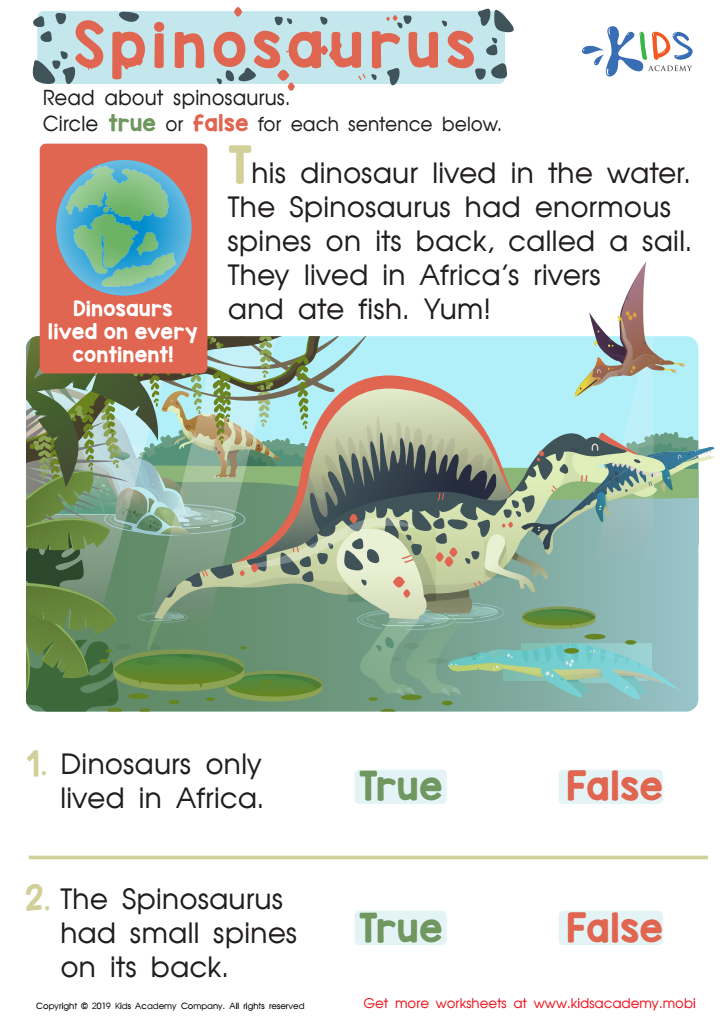

Spinosaurus Assessment Worksheet
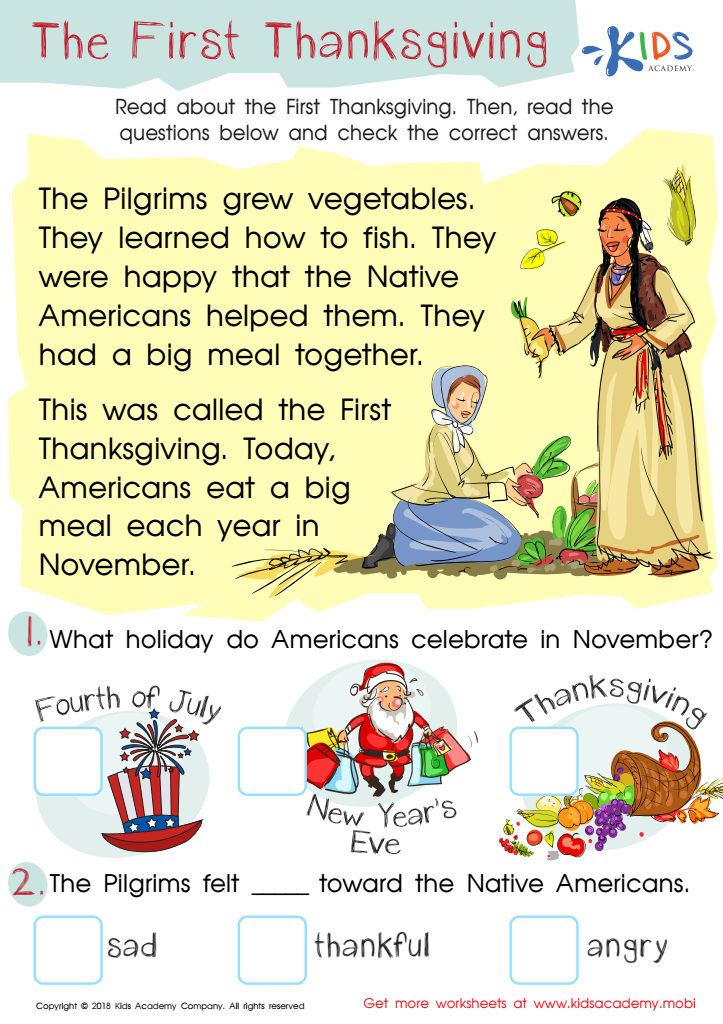

Assessment: First Thanksgiving Worksheet
Normal Reading Non-Fiction activities for children aged 5-9 play a crucial role in their development. Engaging with non-fiction texts fosters a love for learning, encouraging curiosity and exploration of the world around them. These activities help children build essential literacy skills, such as vocabulary expansion, comprehension, and critical thinking.
Non-fiction reading supports diverse learning styles and interests, often introducing young readers to various subjects, from science and history to cultures and technologies. This exposure not only broadens their knowledge but also helps them make connections between information and the real world. By promoting comprehension of factual texts, children learn to analyze information critically—a skill that becomes increasingly important in today's information-rich society.
Incorporating Normal Reading Non-Fiction provides opportunities for discussions at home or in the classroom, where parents or teachers can engage with children about what they’ve learned, deepening understanding. Additionally, it cultivates essential skills like note-taking and summarizing, which are foundational for later academic success. Future-ready skills and a strong base in factual knowledge are vital for children as they progress in their educational journeys. Thus, prioritizing these activities supports holistic development, preparing them to navigate information confidently.

 Assign to My Students
Assign to My Students





